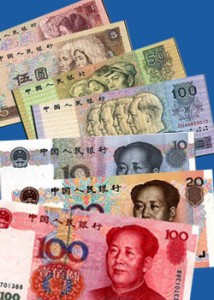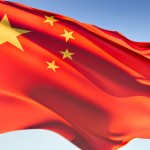Sunday
Aug152010
China This Week: Deadly Mudslides, Pollution Crackdown, Nuclear Weapons Promise
 Sunday, August 15, 2010 at 10:03
Sunday, August 15, 2010 at 10:03  Death toll from China floods and mudslides: The death toll from the massive mudslide in northwest China's Gansu Province has risen to 1,156 as of 4 p.m. Friday, with 588 still missing, local authorities said.
Death toll from China floods and mudslides: The death toll from the massive mudslide in northwest China's Gansu Province has risen to 1,156 as of 4 p.m. Friday, with 588 still missing, local authorities said.Meanwhile, at least 38 people are missing after rain-triggered floods and landslides ravaged Wenchuan County in southwest China's Sichuan Province early Saturday. No casualties had been reported, a spokesperson with the county government said.
An 8-magnitude earthquake claimed almost 70,000 lives in Wenchaun on 12 May 2008.
Chinese flags will be lowered to half-mast across the country and at overseas embassies and consulates on Sunday to mourn the victims of the mudslide. Public entertainment will be suspended on Sunday.
According to some Chinese traditions, the seventh day after a death is the height of the mourning period.
Industrial Polluters Given Two Months to Close: China's industry chiefs have warned more than 2,000 companies to close obsolete production facilities within two months or face cuts in credit and a suspension of government approvals.
The Ministry of Industry and Information Technology has set the deadline in a move to cut overcapacity and raise the level of economic growth. The cement, paper-making and iron sectors are the most significantly affected.
Companies could also face power cuts from suppliers if they fail to cut pollution.
China's Nuclear Arsenal “Purely Defensive": China's nuclear weapons are for self-defense, a top commander in the army's strategic missile corps said.
"If no power presses for nuclear war with China, the Second Artillery Force will always keep silent," promised General Jing Zhiyuan. "We will firmly pursue a defensive nuclear strategy and resolutely implement the 'no first use' policy."
Premier Urges Greater Foreign Aid Efforts: Chinese Premier Wen Jiabao has declared, "China's aid should favor the least developed countries, inland and small island developing countries, and focus on livelihood projects that are urgently needed and welcomed by local people, such as hospitals, schools, water supplies and clean energy."
China's Railway Technology: China's high-speed railway technology is not inferior to any other country's in safety and sophistication, senior officials said on Wednesday, claiming that Bullet trains running from 250 to 350 km per hour have travelled 280 million km in the country so far.
The announcment came after criticism from a Japanese high-speed rail company, which is competing with China for overseas business.
Ministry Rejects Convict Labour Report: China's Ministry of Commerce rejected foreign media reports that Chinese companies had been sending convicted criminals abroad on work projects abroad to prevent overcrowding in prisons.
The reporting was "nonsense with no facts or evidence," said the ministry in an official statement on its website. Sources in the ministry said the reports were featured in the Japan Times, The Guardian, The Washington Times, and Canada's Globe and Mail newspapers.
Government Urges Efforts in Grain Production: China's Ministry of Agriculture said Friday that autumn grain production has entered a critical period, as it pressed local authorities to step up efforts to ensure a good harvest.
The autumn grain harvest makes up 70 percent of China's annual total. annual grain harvest.
Summer grain output declined 0.3 percent to 123.1 million tonnes, the first fall in seven years, according to the National Bureau of Statistics .
China, Africa Forge Farming Ties: China's agricultural cooperation with Africa requires more strategy than passion, an executive from a leading Chinese agribusiness company has said, as Beijing plans to strengthen the China-Africa new strategic partnership with more focus on agricultural links.
"The fragile political situation is still the biggest challenge for Chinese companies investing in Africa," Xu Jun, deputy general manager of China State Farms Agribusiness Corporation (CSFAC), said.
Last year, a cooperative program worth more than 70 million yuan ($10 million) between the CSFAC and Ghana's ruling party came to an abrupt halt when the opposition party took office, Xu said. "Now we prefer to talk with government administrations instead of party leaders when it comes to further cooperation."
China-Argentina Co-operation on Antarctic Expedition: China and Argentina will be more active in cooperation on Antarctic scientific expeditions, an official from the State Oceanic Administration of China has said.
"As a country closest to the South Pole in Latin America, Argentina provides ideal conditions for Chinese expedition teams to gather and rest before entering the pole," Wei Wenliang, head of the Polar Expedition Office, said. "China is willing to launch more antarctic scientific expedition projects with Argentina and contribute to peace of the South Pole, especially after Argentine President Cristina Fernandez's successful visit to China in July this year."
China Launches New Remote-Sensing satellite: China on Tuesday successfully put into orbit another remote-sensing satellite, "Yaogan X", from the Taiyuan Satellite Launch Center in northern Shanxi Province.





